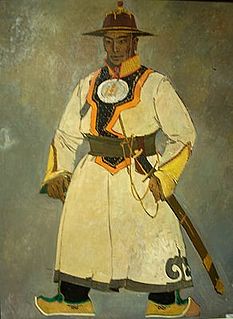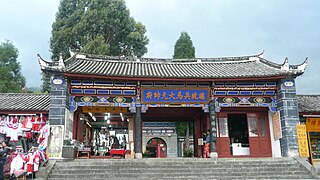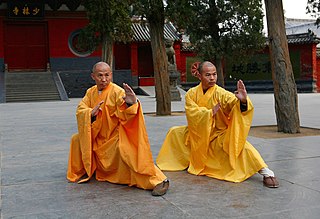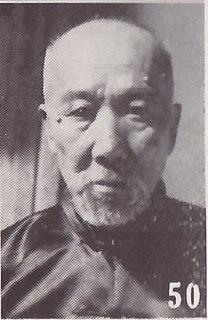 W
WAmursana was an 18th-century taishi or prince of the Khoit-Oirat tribe that ruled over parts of Dzungaria and Altishahr in present-day northwest China. Known as the last great Oirat hero, Amursana was the last of the Dzungar rulers. The defeat of his rebel forces by Qing dynasty Chinese armies in the late 1750s signaled the final extinction of Mongol influence and power in Inner Asia, ensured the incorporation of Mongol territory into the Qing Chinese Empire, and brought about the Dzungar genocide, the Qing Emperor's "final solution" to China's northwest frontier problems.
 W
WChen Yuanyuan (1624–1681) was a courtesan who lived during the late Ming and early Qing dynasties. She was the concubine of Wu Sangui, the Ming dynasty general who surrendered Shanhai Pass to the Manchu Qing dynasty, and later rebelled in the Revolt of the Three Feudatories. Chen's life and relationship to Wu later became the subject of a number of popular stories and legends, many of them focusing on her supposed role in Wu's fateful decision to defect to the Qing, thereby sealing the fate of the Ming dynasty.
 W
WChin Lin Sou was an influential leader in the Chinese American community and prominent figure in Colorado. He immigrated to the United States from Guangzhou, China, in 1859 at the age of 22. Chin stood out amongst his Chinese peers at the time in the United States as he dressed like a westerner and spoke perfect English.
 W
WChing Shih (born Shih Yang, a.k.a. Cheng I Sao, was a Chinese pirate leader who terrorized the China Seas during the Jiaqing Emperor period of the Qing dynasty in the early 19th century. She commanded over 1800 junks manned by 60,000 to 80,000 pirates – men, women, and even children. She entered into conflict with major nations, such as the British Empire, the Portuguese Empire, and the Qing dynasty.
 W
WDu Wenxiu was the Chinese Muslim leader of the Panthay Rebellion, an anti-Qing revolt in China during the Qing dynasty. Du had Han Chinese ancestry.
 W
WFang Shengdong was a late Qing dynasty revolutionary.
 W
WFong Sai-yuk was a Chinese martial artist and folk hero from Zhaoqing City, Guangdong Province of the Qing dynasty.
 W
WCheung Ah Yim ; b. 1824–d. 1893) a.k.a. Jeung Yim, Cheung Yim, Cheung Hung Sing, Jeong Hung Sing, Jeong Hong Sing, Zhang Yan, Zhang Hongsheng; is recognized as an important contributor (Co-founder) to the expansion of Choy Lee Fut - a Southern Chinese martial arts system, and was the most famous of Chan Heung's disciple to emerge from the Choy Lee Fut System.
 W
WKin Yamei also seen as Chin Ya-mei or Jin Yunmei, or anglicized as Y. May King, was a Chinese-born, American-raised doctor, hospital administrator, educator, and nutrition expert. She is credited with introducing tofu to the United States Department of Agriculture (USDA) during World War I.
 W
WLeung Jan was a Dit Da and Wing Chun practitioner from Heshan, Guangdong. He was known in Foshan as Mr. Jan of Foshan and King of Wing Chun Kuen.
 W
WLiu Yazi was a Chinese poet and political activist called the "last outstanding poet of the traditional school." He married Zheng Peiyi in 1906, and was the father of two daughters, Liu Wufei and Liu Wugou, and of a son, Liu Wu-chi, a literary scholar.
 W
WLong Tack Sam was a Chinese-born American magician, acrobat, and vaudeville performer.
 W
WChing Tsai Loo, commonly known as C. T. Loo, was a controversial art dealer of Chinese origin who maintained galleries in Paris and New York and supplied important pieces for collectors and American museums by illegally exporting a large amount of significant state cultural relics from China. He has been called "the preeminent dealer of Chinese art and artifacts for the first half of the twentieth century," but also criticized for his illegal active role in removing antiques and archaeological treasures from China for sale to western collectors.
 W
WPuankhequa, also known as Pan Wenyan or Zhencheng, was a Chinese merchant and member of a cohong family, which traded with the Europeans in Canton during the Qing dynasty (1644–1912). He owned a factory in the Thirteen Factories district where his firm was favored by the English, Swedes, "Imperials" and Danes.
 W
WQing dynasty imperial residents in Tibet, are ambans appointed from the Qing government to govern Tibet.
 W
WSumalagu was a palace attendant of the Qing Dynasty. She was a close confidante of Empress Dowager Xiaozhuang during the reign of the Shunzhi Emperor.
 W
WTan-Che-Qua was a Chinese artist who visited England from 1769 to 1772. He exhibited his work at the Royal Academy in 1770, and his clay models became fashionable in London for a short period. He returned to China in 1772. After the merchant Loum Kiqua in 1756-7, and the Christian convert Michael Shen Fuzong in 1687, Tan-Che-Qua is one of the earliest Chinese people known to have visited England.
 W
WThe Ten Tigers of Canton or Ten Tigers of Guangdong refers to a group of ten Chinese martial artists from Guangdong Province who lived around the 19th century during the Qing dynasty in China. They were said to be the best fighters in southern China at the time. Much of their existence has been embellished by folk legends and stories passed down from generation to generation.
 W
WWang Yinzhi a Qing dynasty philologist. The son of Wang Niansun, he was the author of the Jingzhuan Shici.
 W
WWang Zhixiang ; 1858–1930) was a politician of the Republic of China. He was born in Beijing during the Qing dynasty. He was the 9th Republican mayor of his hometown.
 W
WWong Kei-ying or Huang Qiying was a Chinese Hung Ga martial artist and physician of Cantonese ethnicity, who lived during the Qing dynasty. He was one of the Ten Tigers of Canton. He was best known for his use of the Tiger Crane Paired Form Fist skill set. His son, Wong Fei-hung, who inherited his martial arts and medical skills, is commonly portrayed as a folk hero in Chinese popular culture.
 W
WWu Feng was a Chinese merchant whose legend was once popular in Taiwan.
 W
WWu Quanyou (1834–1902), or Wu Ch'uan-yu, was an influential teacher of t'ai chi ch'uan in late Imperial China. His son is credited as the founder of the Wu-style t'ai chi ch'uan. As he was of Manchu descent, and would have been named by his family in Manchu, the name "Wú" (吳) was a sinicisation that approximated the pronunciation of the first syllable of his Manchu clan name, U Hala.
 W
WXia Gong was a politician of the Republic of China. He was the Supreme Member of the Japanese puppet government, Northern Shanxi Autonomous Government. Later he was appointed Vice-Chairman of the Mongolian United Autonomous Government (蒙古聯合自治政府). He was born in Datong County, Shanxi province.
 W
WYang Lu-ch'an or Yang Luchan, also known as Yang Fu-k'ui or Yang Fukui (1799–1872), born in Kuang-p'ing (Guangping), was an influential teacher of the internal style martial art t'ai chi ch'uan (taijiquan) in China during the second half of the 19th century. He is known as the founder of Yang-style t'ai chi ch'uan, the most popular and widely practised style in the world today.
 W
WYe Chengzhong was a Chinese businessman and philanthropist active during the final years of the Qing Dynasty and a pioneer in the hardware industry who also made considerable contributions to education.
 W
WYu Peilun also spelled Yu Pei-lun was a late Qing Dynasty revolutionary. During the Chinese Revolution of 1911, he was part of the Chinese students anti-monarchy "Dare to Die" corps of suicide bombers. Yu died in 1911, from detonating explosives while leading a suicidal charge against forces loyal to the Qing government.
 W
WYung Wing was the first Chinese student to graduate from an American university. He was involved in business transactions between China and the United States and brought students from China to study in the United States on the Chinese Educational Mission. He became a naturalized American citizen, but his status was later revoked under the Naturalization Act of 1870.
 W
WZhan Shichai was a Chinese giant who toured the world as "Chang the Chinese Giant" in the 19th century; his stage name is "Chang Woo Gow".
 W
WZhu Shaowen, better known by his stage name Fear No Poverty (穷不怕), was a Chinese storyteller and xiangsheng performer, widely regarded as one of the earliest performers of the art. Born in Beijing, China, Zhu was the protégé of late Qing dynasty entertainer Zhang Sanlu, and specialised in puns. Zhu was amongst the "Eight Oddities of Tianqiao" (天桥八怪) and mentored later xiangsheng artistes. He died in 1903, and to this day, many of his works are still performed.